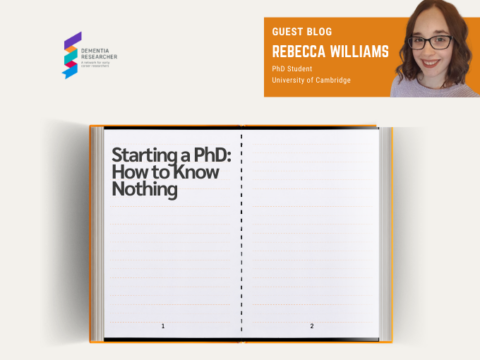The PhD defence, or viva, is significant academic rite of passage, which as well as marking the culmination of years of study, can also be a highly charged emotional moment. Drawing on years of collecting accounts of PhD defences on her blog and her recent book (Planning and Passing Your PhD Defence, co-authored with Olga Degtyareva), Eva Lantsoght, discusses how both PhD students and supervisors can benefit from a more engaged understanding of the emotions underlying the PhD defence.

Like so much else in life, a rite of passage for doctoral students has gone virtual during COVID-19: the PhD defense. You enter this event as a student. You leave as a newly minted PhD.
In the days leading up to my doctoral defence, I had a recurring nightmare about my supervisor forgetting to show up for my defence. I was well-prepared, and since I was defending in the Netherlands, my thesis was already printed and approved. Failing was virtually impossible. Why then, was I nervous about my doctoral defence to the point of having recurring nightmares?
After eventually passing my doctoral defence, I decided to collect stories about the doctoral defence (or viva, depending on the country) around the world for my blog. I was originally fascinated by the differences between defence formats (such as the sword newly minted doctors receive in Finland and the medal in Chile). Over time, however, I started to see that below the superficial differences, all types of defence show similarities. One is that there is always an emotional dimension to the defence. My worries before my defence were hardly an isolated case. Many doctoral candidates report strong emotions around thesis submission, in the weeks leading up to the defence, during the event, and even afterwards, when the post-defence blues may kick in.
Typically, discussions on the doctoral defence centre around the scholarly dimension. A defence is often viewed solely as an academic event marking and evaluating the end of a research project.
Typically, discussions on the doctoral defence centre around the scholarly dimension. A defence is often viewed solely as an academic event marking and evaluating the end of a research project. However, in our recent book Planning and Passing Your PhD Defence, which I co-wrote with Olga Degtyareva, we have paid special attention to the emotional dimension of the defence (of course, in addition to the scholarly dimension preparing for answering questions, and other traditional aspects related to the doctoral defence). This was in part because, we strongly felt that we shouldn’t consider the defence as a regular examination, where a standard set of criteria are used to assess a student. Besides its function as an examination, the defence is also a rite of passage, a confirmation, a celebration, and the culmination of years of independent research work. Emotions are murky and difficult to factor in for assessment. The emotions involved in the doctoral defence make it a unique event: for the candidate, the examiners (or committee members), and for the supervisor. Being aware of these emotions, and bringing them to light, is important to understanding the defence better and the role it plays in a research career.
In my work on the doctoral defence, I found (to my surprise) that the major differences between defence formats did not influence the candidates’ perception much. On the other hand, I did find important differences in the emotions felt by candidates related to the defence, as a function of socio-demographic aspects, notably gender. Women doctoral candidates experience more negative feelings before the defence, and if they had a negative experience during the defence, the negative impact on their perception as a researcher could often be long-lasting. Being aware of how different groups experience the emotions related to the defence differently is important, especially for supervisors and examiners, and can be empowering for candidates. Besides simply being aware of the emotional dimension, it can also enable the small changes that can help settle things when emotions run high: taking a short break, offering water, getting up to open a window, or moving to another topic of the thesis.
While each PhD candidate, each research study, and each PhD trajectory are unique, there are some common emotions that deserve to be mentioned. First of all, in the weeks or days leading up to thesis submission, candidates often feel that the work is not enough, worthless, or otherwise insufficient, and these feelings can contribute to perfectionism. Other candidates may be so tired of the thesis that every small action may feel like a terrible chore. Some feel relieved upon submission, and others worry about how it will be received.
Many candidates also worry about how they will perform. For candidates in the United Kingdom, where the viva takes place before final submission of the thesis and may determine the level of corrections required for the thesis, candidates worry about what the outcome of the thesis and viva will be. Major revisions could potentially add months to the doctoral journey. Because the viva is behind closed doors, candidates also may not know very well what to expect. In the Netherlands, where candidates are sure they will pass, other causes lead to worry and anxiety. As the defence is public, candidates feel the pressure to perform well in front of the committee, friends, colleagues, and family.
it is also important for supervisors and examiners to be aware of this emotional dimension, and to know how different groups of candidates experience these emotions
The first step in dealing with this anxiety, is to name and acknowledge it, and to know that these feelings are normal. Candidates who passed without corrections worry about passing their defence as much as those who had more work on their thesis after the defence. Breathing techniques, meditation, and relaxation exercises can help. University counselling services should be there to support as well. Being well-prepared for the day of the defence itself may also help candidates to feel more in control over the day and their feelings. A positive action, such as stopping by colleagues and expressing gratitude to them before the defence, can improve defence-day-anxiety. Many candidates feel more nervous right before and at the beginning of their defence. Taking notes, repeating the question, or asking for clarification of the question, are all valid options to start answering in a calm and controlled manner. At the end of the defence, candidates can be nervous to hear the outcome, and the minutes while the committee is in deliberation may feel like hours. Then, after hearing the verdict, often the final flood of emotions (relief, happiness, pride, or perhaps disappointment, anger, or worry about the thesis revision) comes.
Emotions play an important role leading up to and during the doctoral defence. Understanding the role of these emotions is important for candidates, so that they know that what they are feeling is normal, and does not mean that they are not worthy of a doctorate. At the same time, it is also important for supervisors and examiners to be aware of this emotional dimension, and to know how different groups of candidates experience these emotions. Being aware of and holding space for these emotions allows all those who are involved in the defence to experience the defence, not simply as a test of knowledge, but as the important moment it is, in the formation and affirmation of a new scholar.

Dr Eva Lantsoght

 Print This Post
Print This Post




